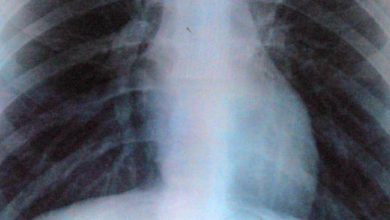By: Mackenzie Naert
Having recently completed my third year of medical school, I have been thinking a bit about my experience and that of my peers. Third year is ripe with unanticipated challenges—the triple burden of managing your academics, patient responsibilities, and also all of the emotions that come along with finally taking care of patients. I have always felt lucky to receive good advice from older students on how to jump through the various hoops that med school puts in front of us. What I am going to tell you about today are the things NOT to do; you would be surprised how many times I saw students do these during third year. A theme that you will see is that third year is a delicate balance—prioritizing patient care while finding time to study, and helping your team while also standing out. Everyone strikes a different balance, but here is some advice that should apply to just about everyone hoping to do well and make the most of the year.
Complain.
Do not complain about anything, to anyone, at any point. Third year grading is incredibly subjective. While many schools including my own try to use measures to standardize the grading system, inevitably a large portion of your grade is going to be based on clinical evaluations, aka how much people like you. And no one likes to be around complainers. This rule of course disappears when you head home for the night, at which point you should feel free to complain and rant all you need to you roommates, family members, and significant others—just keep it out of the hospital, and keep patient information confidential.
Be on your phone for social purposes.
This is a tricky one. There are so many helpful phone apps that greatly aid the third year medical student (UptoDate, MD Calc, Journal Club, etc). There were several times when I was able to anticipate and look up a pimping question just in the nick of time, giving the appearance I already knew the answer. However, there is nothing worse than looking disinterested or like you are Facebooking during rounds (perhaps being on Tinder would be worse…). When looking something up, I would try to position myself in a way such that anyone looking at my phone could tell what I was doing, or I would say “Let me see what I can find on topic X” to make it very clear that I was still engaged.
Read More: Starting a New Clinical Rotation
Neglect studying.
Another tricky one. Especially early in the year, when the clinical environment is so new, and so much energy is expended figuring out your role as a third year and on your team. Many of my peers neglected studying for the shelf and subsequently did poorly in the rotation as a whole. Different schools weigh the shelf differently; while my school does not have a certain score needed to obtain the highest grade of honors, you have to do pretty well on the shelf to have a fighting chance. Shelf exams are difficult. They get easier with practice but in the beginning of the year when you are getting used to the format and how to study, it takes a lot of studying and practice questions to do well.
Study when you should be helping your team.
I remember very clearly one day on my OB/GYN rotation when I came out of a C-section and asked one of the other medical students (disclaimer: she is from a different medical school) what needed to be done. She was doing UWorld questions on her phone because she said there was nothing to do. I walked a few yards away to triage and asked my intern if he needed help with anything and he told me there were 4 patients needing to be seen and it would be really helpful if we could start talking to them. I grabbed the other student, who was shocked there was work to do having not sought it out, and we saw the patients. Residents understand that we need to study, but there is a time and place for everything and it is critical to remember that during clinical hours, the priority is the team. While it was stressful at times, I always aired on the side of caution and did not study during the day and still did very well on all of my shelf exams.
Demonstrate disinterest.
Unless you are one of the few medical students who genuinely enjoys every rotation (we all know the type), there are going to be rotations that you dislike—possibly even hate. DO NOT make this known. Again, I cannot emphasize enough that attitude is everything. While you certainly do not (and I would not recommend) need to fake an interest in every field you are rotating through, there is always something to be learned and skills that will inevitably help you in other rotations in which you are more invested. There are exceptions, but residents and attendings are generally very passionate about their fields and want to share this with you. Disinterest is very obvious, and once residents sense that you do not care about learning, they will be much less interested in teaching you.
Read More: How to Succeed in your Clinical Rotations as a Medical Students
Disappear.
Oh the case of the disappearing medical student! It was more than halfway into third year before I really witnessed how bad this could be. I was on an inpatient rotation and one of the other students on my team simply could never be found! The rest of us were pre-rounding, and she was not there. Mandatory lunch conference? Gone like the wind. Afternoon didactic? Never saw her. From a purely self-interested perspective, I think it goes without saying that you are not going to get good evaluations if no one knows you. Beyond that, so much of being a third year medical student and ultimately a doctor is about being part of a team, and that is pretty hard to do if you are not around to help out.
Do only as you are told.
There is an untold rule of third year that you are expected to go above and beyond what is directly asked of you. This can mean a lot of different things—offering to pick up another patient on your inpatient team, staying late to help the intern who is overwhelmed in triage, looking up a clinical question that came up on rounds that no one directly asked you to look into. While this comes naturally to some people and not to others, I saw several very strong medical students do poorly in their evaluations for not “taking initiative” when they thought they were doing everything they were supposed to be doing, but did not seize these opportunities to go the extra mile.
Look tired.
Third year is EXHAUSTING. My first rotation of third year was surgery and there were many nights when I got home and knew I had to be back at the hospital within 7 hours. Somehow in those 7 hours, I had to sleep, eat, shower, and prepare for the cases I would scrub into the next day. This usually meant a 5-minute shower followed by a PB & J in bed quickly skimming Surgical Recall, followed by a large cup of coffee on the 5am shuttle. All of this being said, nodding off on rounds and yawning in front of patients look really bad, and you should do your best to avoid it.
Put down other medical students—OR try to show them up.
As medical students, we are preparing to be residents. Residency is incredibly difficult, and trying and residents must constantly rely on their co-residents for support. For some reason, some medical students think it is appropriate to put down other medical students, even in front of their residents and attendings. Teamwork is everything, and on almost every rotation I have been incredibly grateful to the other medical students I am working with—grabbing you that coffee, tapping you as you nod off on during rounds, sharing templates to make note writing easier—whatever it may be. While I never personally felt other medical students were trying to show me up, I do have peers with stories of other students taking their patients or taking credit for their work which is not cool, and I imagine it must surely come back to bite them.
Stress too much about the student stuff.
If I haven’t made it clear already, third year can be very stressful and clinical grades certainly are important. One thing that really helped me was separating the “student stress” from what I thought of as the “patient stress.” The “student stress” was that voice in my head saying, “Do my residents like me? Did that oral presentation go well? Does it matter that I missed those pimping questions? Am I getting enough UWorld questions correct?” This was very different from the “patient stress”—grief over your favorite patient who just died; the inability of a failing health system to better support uninsured patients; the bloodstains on your white coat from a failed attempt at CPR. I found that a lot of the time when I felt stressed, compartmentalizing these two types of stress helped me figure out how to cope and what to do next.
Hopefully this will provide some help on what NOT to do during clinical rotations so that you can succeed and prepare yourself for residency!



